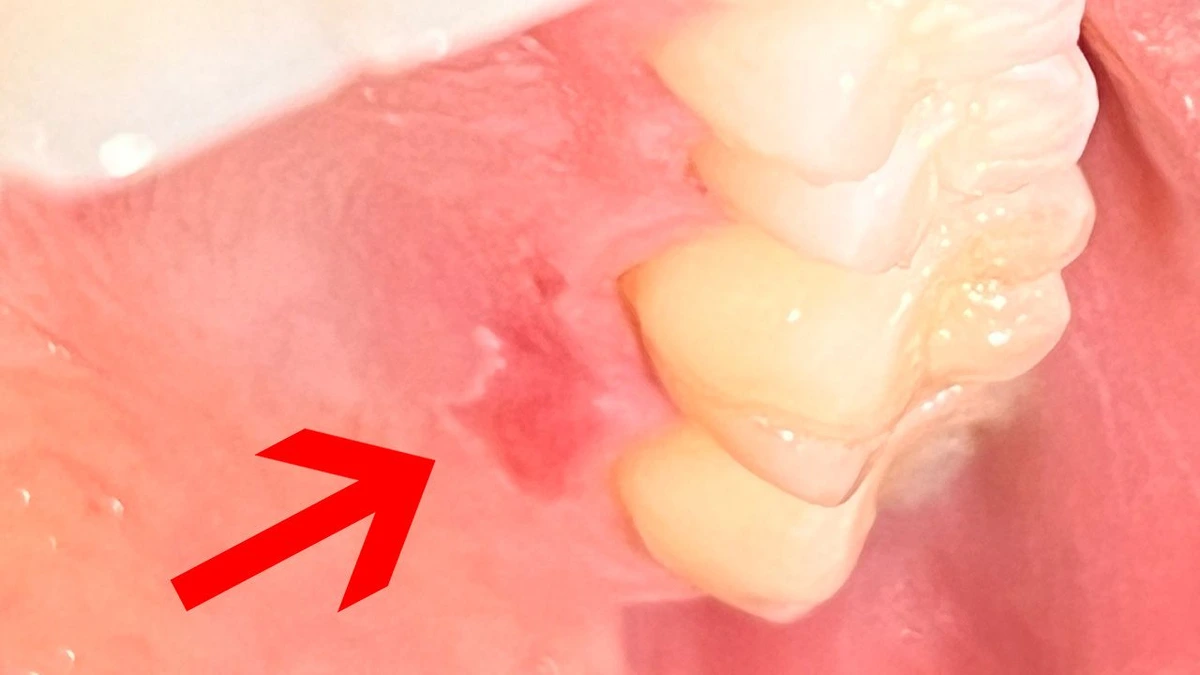How To Heal A Burnt Tongue: Causes & Treatment


If you’ve ever burnt your tongue on something, you know how painful it can be to try to eat or talk. Usually, when most of us burn ourselves with food, it’s in the roof of our mouth (palate.) That being said, nobody is immune to a burnt tongue. And since your tongue is one of those muscles that also moves involuntarily (like when you’re swallowing) it can be especially uncomfortable following an injury. Knowing what to do and how to heal a burnt tongue can help you manage the pain and prevent infection.
Tongue Burn Vs. Burning Mouth Syndrome
If you have a burnt tongue, chances are that it’s something that came on suddenly and you know the exact food (or drink) that caused it. The burn is usually isolated to one or two specific areas in your mouth, depending on which one came into contact with the food or beverage that burned them. So, in the case of a burnt tongue, you might also have a burn in the roof of your mouth or on your lips.
But burning mouth syndrome isn’t the same as having a burnt tongue. Instead of getting physically burned by something, burning mouth syndrome is caused by a medical condition or even a treatment (such as radiation therapy or chemotherapy in cancer patients.) Usually, burning mouth syndrome affects numerous parts of your mouth, including the inside of your cheeks, palate, tongue, etc.
Some of the known causes of burning mouth syndrome include:
- acid reflux disease
- dry mouth (xerostomia)
- cancer
- allergies
- diabetes
- stress, anxiety
- neurological conditions
- autoimmune disorders
- thyroid problems
- geographic tongue
On the other hand, a burnt tongue is simply due to hot temperatures causing tissue burns in your mouth. Since burns gradually heal, a burnt tongue improves with time. But burning mouth syndrome may not improve without medication changes, special mouthwash, or possibly even cognitive-behavioral therapy (for stress.)
How To Treat Burnt Tongue
As long as the burn isn’t severe enough to require immediate medical care, you can follow these tips for how to heal a burnt tongue:
- Sip on cold water to keep your mouth clean and numb the burned area.
- If you’re comfortable, consider holding an ice cube to your tongue for a few seconds. If you have access to “soft” ice and can hold it comfortably in your mouth, that’s fine too (just don’t chew it!)
- Avoid spicy, salty, or hot foods while you’re healing.
- Stick to soft foods that require little chewing, such as pudding, yogurt, ice cream, etc.
- Use an over-the-counter topical numbing medication such as teething gel or throat spray for short-term pain relief. Only use these products as directed.
- Take an over-the-counter anti-inflammatory (ibuprofen/Motrin) as directed to minimize inflammation and discomfort.
- Keep your mouth clean to avoid an infection.
If the burn is painful enough to interfere with eating and drinking, ask your dentist about getting a prescription for “miracle mouthwash”. This special mouth rinse contains lidocaine (numbing medication) to actually numb your burnt tongue for a longer period of time. Stronger anesthetics such as these can be helpful if you’re trying to figure out how to heal a burnt tongue so that you can sleep at night or eat without being in pain.
Sometimes oral wounds can be severe enough that dentists have to apply a special type of bandage (although that’s a poor word for it) over your traumatized tissue. These thin protective layers reduce irritation so that the wound can heal properly.
Common Causes
Physical burns to your tongue are usually caused by food products. Pizza is one of the top offenders, especially when it comes to a burn in the roof of your mouth. Since the cheese tends to be hotter than it seems, it can stick to your mouth longer than other foods and burn you more easily.

Coffee is another top offender. If you’re used to a fresh cup of Joe to help you wake up and get the brain going each morning, sipping too much too soon can lead to an unexpected burn.
Vaping accessories and tobacco products are also known for causing oral burns, but most of them are isolated to the roof of the person’s mouth. That being said, there have been cases where vaping products and e-cigs have exploded, leading to severe oral burns and even facial disfigurement.
The best way to prevent common causes of a burnt tongue or mouth is to simply take your time when you’re about to eat or drink. If the food is hot, test it first. Only take a small bite or sip in the beginning so that if it is still hot, you won’t do much damage. Burns tend to happen when you’re in a hurry or “dig right in” when there’s a hot food you’re eager to enjoy.
If you seem to have a burned tongue but don’t remember eating anything hot — and the sore doesn’t heal within a week or two — be sure to talk to your dentist about it. It might not be a burn at all. Instead, it could be related to an underlying medical condition that is yet to be diagnosed.
Common Symptoms
Since your mouth is covered in mucous membranes, it tends to be more susceptible to physical trauma and irritation. When you get burned, those parts of your mouth tend to look bright red and stand out from the areas around them. When it comes to burns on your tongue, you’ll probably notice significantly different surfaces or “raw” skin. Since our tongues are covered in hundreds of tiny papilla and taste buds, any time they’re damaged it will leave what looks like an unnaturally smooth surface. Conditions like geographic tongue are a classic example. Typically, you can see a dramatic border or edge around the sore until the papilla grow back.
Shortly after you burn your mouth or tongue, the outermost layer of skin will usually take on a whitish appearance. As it heals, you’ll probably notice a thin white or greyish coating across the entire surface of the burn. Try not to touch these areas with food or your toothbrush, as it may disrupt that outer layer of cells and thus delay your healing.
Tenderness is common. Do your best to avoid any food coming into contact with that part of your mouth (it’s not always possible, which is why a soft diet is usually necessary.) It may take at least 2-3 days for the sensitivity associated with an oral burn to improve.
Fortunately, most symptoms will gradually diminish as each day goes by. Since your mouth is highly vascular, it almost seems to heal more quickly than if you had a burn or cut on skin elsewhere on your body. What might take 10 days on your skin may only take a week inside of your mouth. If you can find a way to keep yourself comfortable for the first couple of days, you should be back to yourself in no time.
Risks Of Untreated Burns On Tongue
Any time there’s a wound inside of your mouth, you’ll probably notice some swelling and inflammation. This natural healing process can sometimes be troublesome, as swollen tongues or cheeks tend to get recurring trauma due to accidentally biting or bumping them.
Severe burns that don’t heal properly could potentially put you at risk of a systemic infection. Although this condition is rare, it could become life-threatening if professional treatment isn’t sought.
When To See A Doctor
Should you see a doctor or dentist for a burnt tongue? Normally it isn’t necessary. A typical oral burn will be mild enough that you’ll recover on your own with a modified diet and palliative care.
However, there are always exceptions. If your burn is severe enough to interfere with normal daily activities, appears infected, or isn’t healing, then you need to see a physician or dentist. Your dentist is probably one of the best resources, as they have access to medications you can use on your soft oral tissues for fast pain relief. They may decide to prescribe “miracle mouthwash” or even apply a wound-care material over your burnt tongue.
If for any reason you believe your burn has become infected, seek medical care. Although it’s not a common occurrence, a severe oral infection could result in hospitalization or become life-threatening. The best thing to do is watch for symptoms of infection (like redness and swelling) so that you can intervene as early as possible.
Overcoming A Burnt Tongue
Most people burn their mouths on pizza. But getting a burnt tongue is fairly common too (especially if you’re a coffee lover.) The great news is that by taking it easy for a few days, your mouth can usually heal pretty quickly. But if the burn is severe enough it could require medical care or a prescription to get you out of pain. Always watch for signs of infection; although rare, you should seek care from your physician or dentist if redness and swelling start to develop.

Make your inbox smile!
Subscribe






